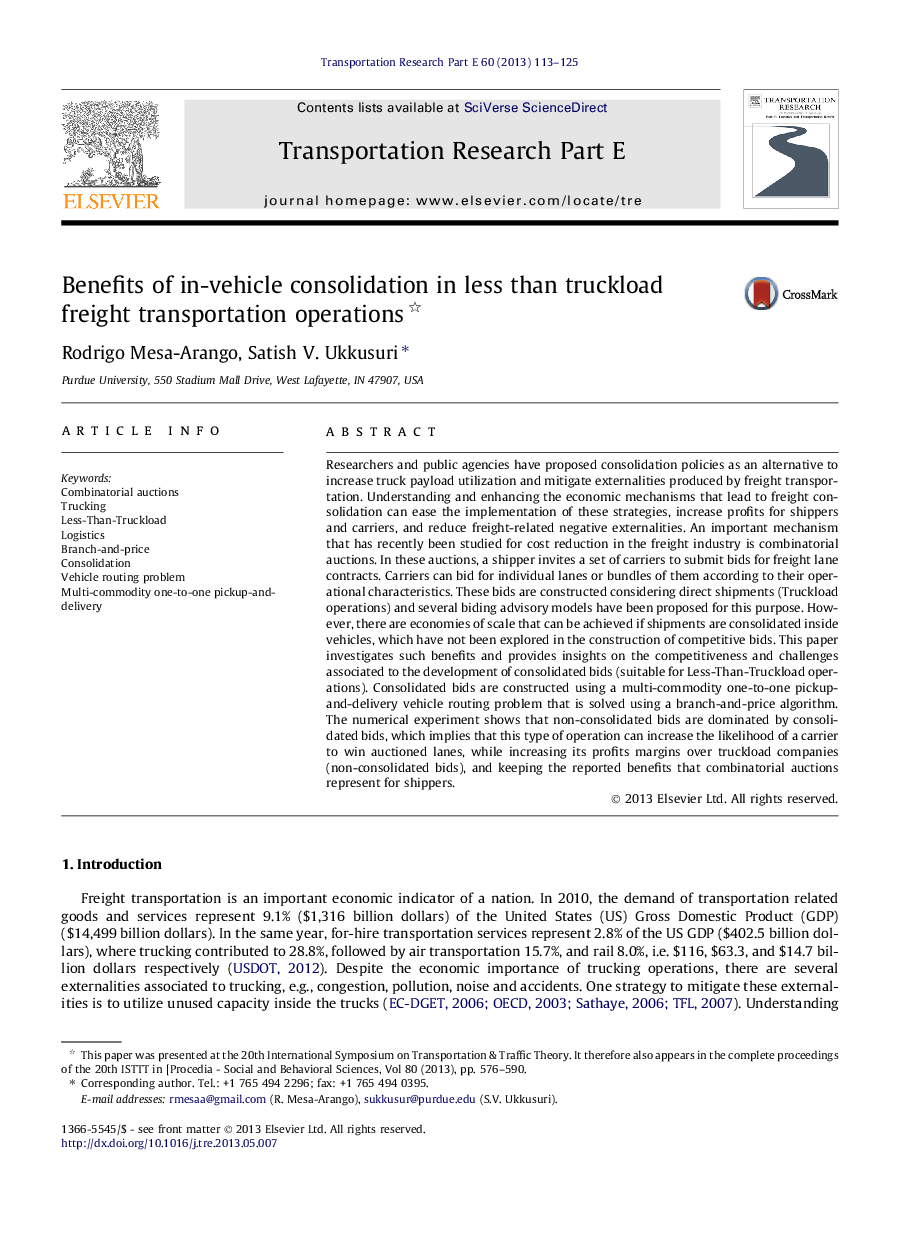| Article ID | Journal | Published Year | Pages | File Type |
|---|---|---|---|---|
| 7428239 | Transportation Research Part E: Logistics and Transportation Review | 2013 | 13 Pages |
Abstract
Researchers and public agencies have proposed consolidation policies as an alternative to increase truck payload utilization and mitigate externalities produced by freight transportation. Understanding and enhancing the economic mechanisms that lead to freight consolidation can ease the implementation of these strategies, increase profits for shippers and carriers, and reduce freight-related negative externalities. An important mechanism that has recently been studied for cost reduction in the freight industry is combinatorial auctions. In these auctions, a shipper invites a set of carriers to submit bids for freight lane contracts. Carriers can bid for individual lanes or bundles of them according to their operational characteristics. These bids are constructed considering direct shipments (Truckload operations) and several biding advisory models have been proposed for this purpose. However, there are economies of scale that can be achieved if shipments are consolidated inside vehicles, which have not been explored in the construction of competitive bids. This paper investigates such benefits and provides insights on the competitiveness and challenges associated to the development of consolidated bids (suitable for Less-Than-Truckload operations). Consolidated bids are constructed using a multi-commodity one-to-one pickup-and-delivery vehicle routing problem that is solved using a branch-and-price algorithm. The numerical experiment shows that non-consolidated bids are dominated by consolidated bids, which implies that this type of operation can increase the likelihood of a carrier to win auctioned lanes, while increasing its profits margins over truckload companies (non-consolidated bids), and keeping the reported benefits that combinatorial auctions represent for shippers.
Keywords
Related Topics
Social Sciences and Humanities
Business, Management and Accounting
Business and International Management
Authors
Rodrigo Mesa-Arango, Satish V. Ukkusuri,
